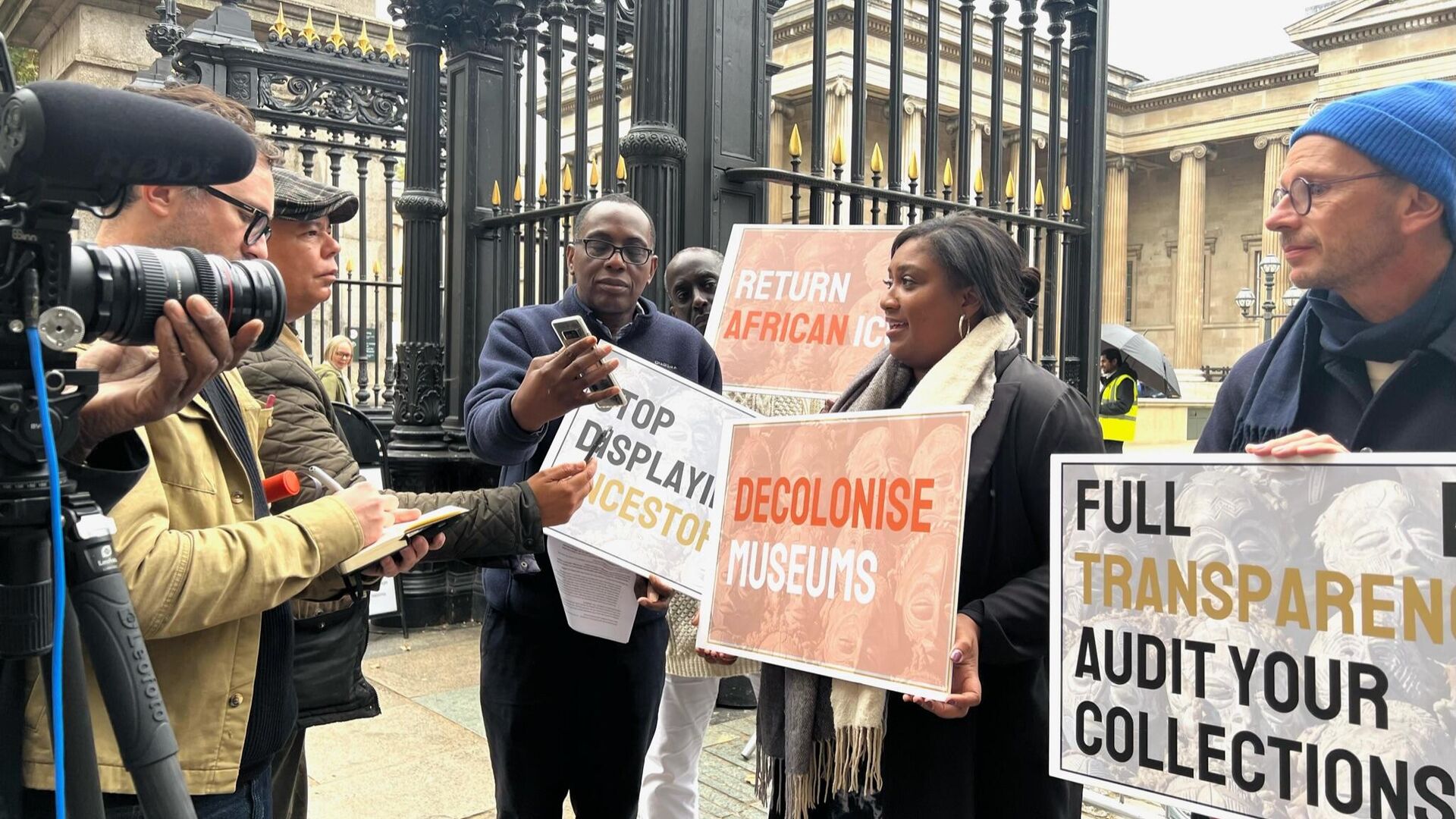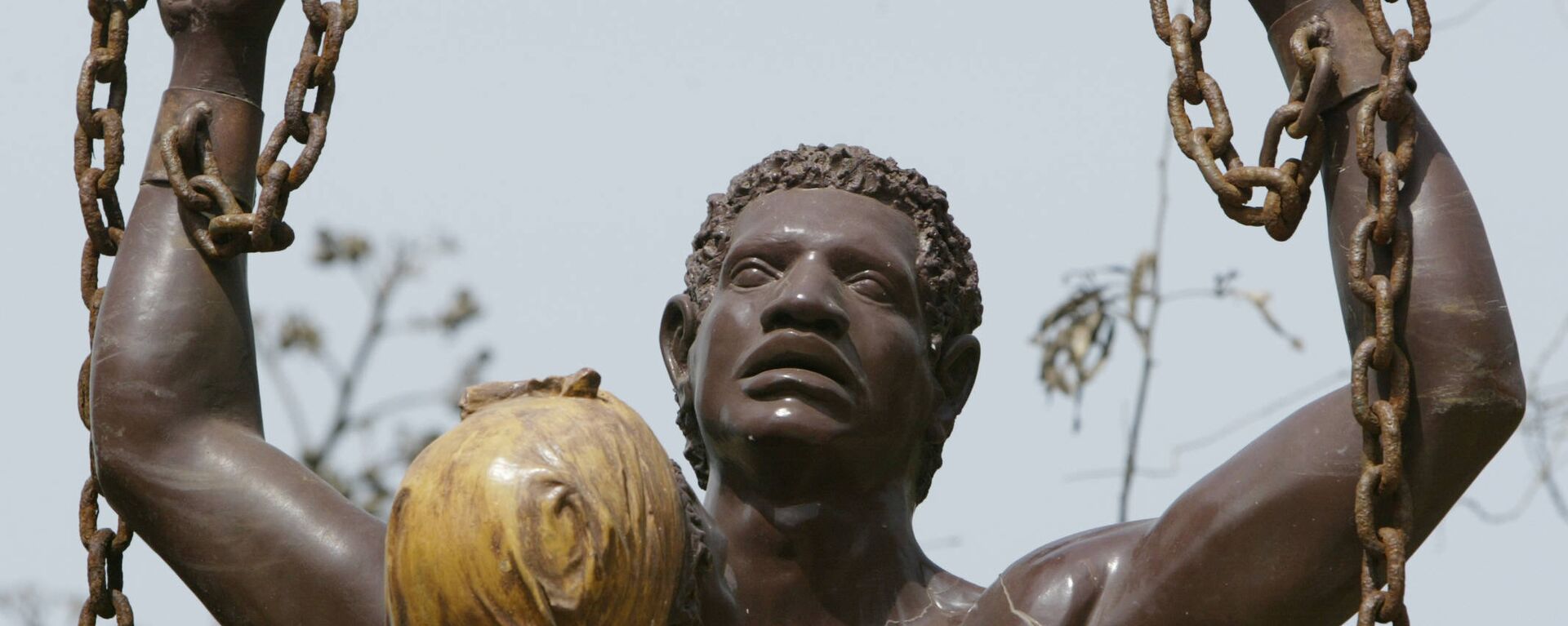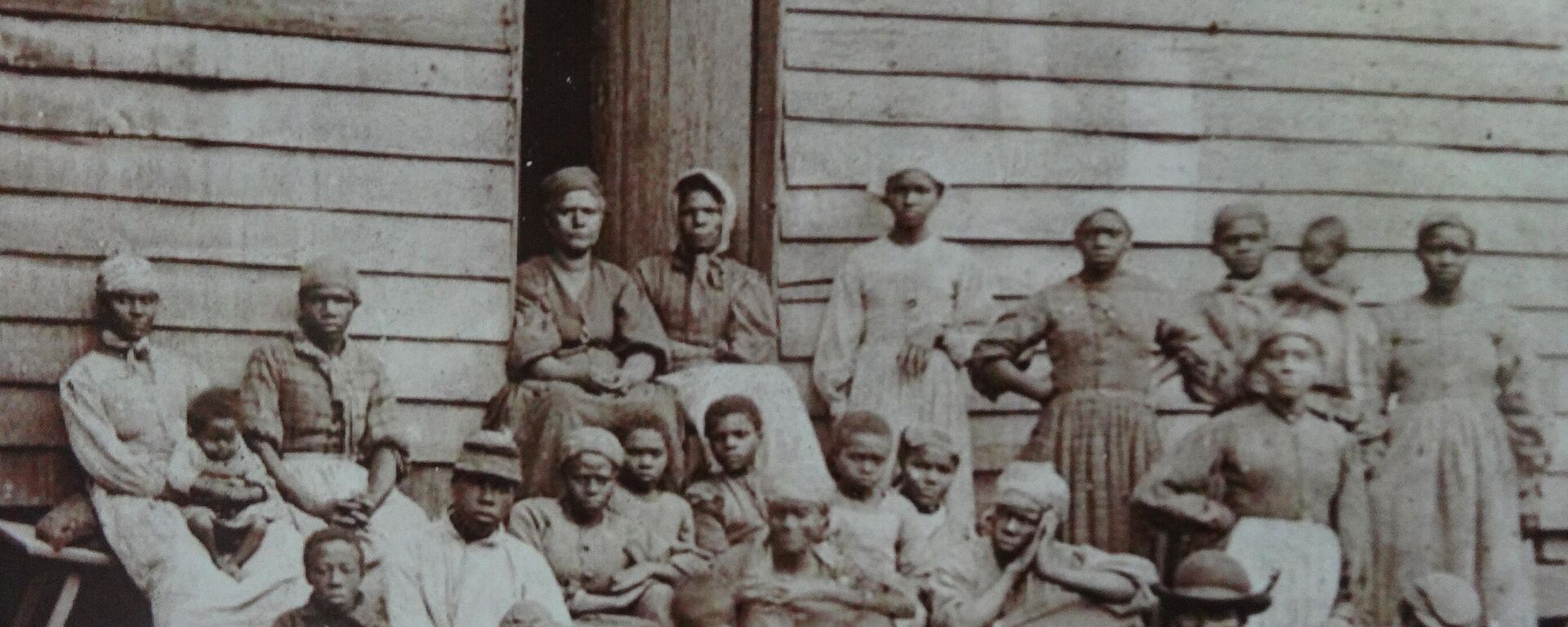https://en.sputniknews.africa/20231022/uk-politicians-activists-convene-for-first-conference-on-reparatory-justice-for-african-slave-trade-1062990978.html
UK Politicians, Activists Convene for First Conference on Reparatory Justice for African Slave Trade
UK Politicians, Activists Convene for First Conference on Reparatory Justice for African Slave Trade
Sputnik Africa
In August, the United Nations issued a report urging former colonial powers to compensate African nations financially for the injustices sustained during the... 22.10.2023, Sputnik Africa
2023-10-22T12:04+0200
2023-10-22T12:04+0200
2023-10-22T12:04+0200
sub-saharan africa
united kingdom (uk)
britain
colonialism
british colonialism
politics
reparations
slavery
nana akufo-addo
benin
https://cdn1.img.sputniknews.africa/img/07e7/0a/16/1062992712_0:192:2049:1345_1920x0_80_0_0_3e41c650b4422ac52213e38ceb6da897.jpg
The All-Party Parliamentary Group-Afrikan Reparations (APPG-AR), consisting of cross-party MPs, is holding its inaugural Reparations Conference this weekend in Euston, North London, to agree on a common statement that MPs can use to advance the policy for reparative justice in the House of Commons.The conference brought together politicians, campaigners, and community groups to discuss the issues of reparatory justice for people of African descent, repatriation of art and cultural artifacts, as well as analyze policy proposals on reparations and explore the most effective ways to address the enduring effects of colonialism.According to Ribeiro-Addy, the participants include those "who have been talking about these issues for a long time," such as grassroots activists, campaigners and communities, representatives from the Scottish National Party, Green Party, and Labor Party.She emphasized that even though providing some financial compensation might be necessary, the group's objectives regarding reparative justice for African people go beyond financial pledges by the West. She suggested that efforts be made to redress the harm inflicted as a direct consequence of the enslavement and trafficking of Africans.Among other topics, the conference aims to address the return of valuable African artifacts and ancestral remains that are currently held in museums and other institutions throughout the UK. Ribeiro-Addy recalled that some museums claim that returning these items would leave their collections empty and people in Africa wouldn't "be able to take care of them." She expressed hope that all museums will follow the example of the Horniman Museum in London and repatriate looted and stolen items from their collections to their countries of origin. The Horniman Museum, located in southeast London, had a collection of 72 artifacts taken from Benin City in 1897. However, last year, the museum officially handed over ownership of six items to the Nigerian government. The remaining collection will be on loan in the UK and will eventually be returned over the years to come.Ribeiro-Addy went on to say that the APPG-AR urges the Department of Culture, Media, and Sport to allocate resources for provenance research, claims negotiation, and the expenses associated with returning stolen items.Last month, speaking at the UN General Assembly (UNGA), Ghanaian President Nana Akufo-Addo called for reparations from nations that participated in the transatlantic slave trade in Africa. Akufo-Addo highlighted the increasing global awareness of this issue, emphasizing that the world had previously avoided addressing the full consequences of the slave trade.
https://en.sputniknews.africa/20230920/world-powers-should-pay-reparations-for-colonialism-enslavement-of-africans-un-reports-says-1062237493.html
https://en.sputniknews.africa/20230922/colonizers-must-stop-robbing-africa-and-should-return-the-stolen-experts-argue--1062278576.html
united kingdom (uk)
britain
benin
west
Sputnik Africa
feedback@sputniknews.com
+74956456601
MIA „Rossiya Segodnya“
2023
News
en_EN
Sputnik Africa
feedback@sputniknews.com
+74956456601
MIA „Rossiya Segodnya“
Sputnik Africa
feedback@sputniknews.com
+74956456601
MIA „Rossiya Segodnya“
united kingdom (uk), britain, colonialism, british colonialism, politics, reparations , slavery, nana akufo-addo, benin, west
united kingdom (uk), britain, colonialism, british colonialism, politics, reparations , slavery, nana akufo-addo, benin, west
UK Politicians, Activists Convene for First Conference on Reparatory Justice for African Slave Trade
In August, the United Nations issued a report urging former colonial powers to compensate African nations financially for the injustices sustained during the years of colonialism and enslavement. The report stressed that to date, no state has thoroughly acknowledged and addressed the consequences of these past practices.
The All-Party Parliamentary Group-Afrikan Reparations (APPG-AR), consisting of cross-party MPs, is holding its inaugural Reparations Conference this weekend in Euston, North London, to agree on a common statement that MPs can use to advance the policy for reparative justice in the House of Commons.
The conference brought together politicians, campaigners, and community groups to discuss the issues of
reparatory justice for people of African descent, repatriation of art and cultural artifacts, as well as analyze policy proposals on reparations and explore the most effective ways to address the enduring effects of colonialism.
"We are bringing people from across the country – and there are international speakers as well – to make a very, very distinct and clear call for reparative justice," said Bell Ribeiro-Addy, the Streatham MP and chair of the APPG-AR.
According to Ribeiro-Addy, the participants include those "who have been talking about these issues for a long time," such as grassroots activists, campaigners and communities, representatives from the Scottish National Party, Green Party, and Labor Party.
She emphasized that even though providing some
financial compensation might be necessary, the group's objectives regarding reparative justice for African people go beyond financial pledges by the West. She suggested that efforts be made to redress the harm inflicted as a direct consequence of the enslavement and trafficking of Africans.
"We want commitments that go far beyond financial compensation," she stressed, further elaborating: "Understandably, there may be some financial compensation payments to be made. [But] reparative justice has to go much further, it has to go towards equity, repairing all the damage that was done as a direct consequence of the trafficking and enslavement of Africans."
Among other topics, the conference aims to address the return of valuable African artifacts and ancestral remains that are currently held in museums and other institutions throughout the UK. Ribeiro-Addy recalled that some museums claim that returning these items would leave their collections empty and people in Africa wouldn't "be able to take care of them."
In this regard, she noted that "the British Museum doesn’t even know what it has, to the extent that for over a year, employees were suspected of stealing things and putting them on eBay."
She expressed hope that all museums will follow the example of the Horniman Museum in London and
repatriate looted and stolen items from their collections to their countries of origin. The Horniman Museum, located in southeast London, had a collection of 72 artifacts taken from Benin City in 1897. However, last year, the museum officially handed over ownership of six items to the Nigerian government. The remaining collection will be on loan in the UK and will eventually be returned over the years to come.
Ribeiro-Addy went on to say that the APPG-AR urges the Department of Culture, Media, and Sport to allocate resources for provenance research, claims negotiation, and the expenses associated with returning stolen items.
"I hope we will come together on some unifying points and use these points to push policy for legislation to be put down which makes moves towards reparative justice," she said, adding: "That’s what we’re working towards and it would be wrong for us to do that without first consulting the community. So that’s what we are doing today."
Last month, speaking at the UN General Assembly (UNGA), Ghanaian President Nana Akufo-Addo
called for reparations from nations that participated in the transatlantic slave trade in Africa. Akufo-Addo highlighted the increasing global awareness of this issue, emphasizing that the world had previously avoided addressing the full consequences of the slave trade.



